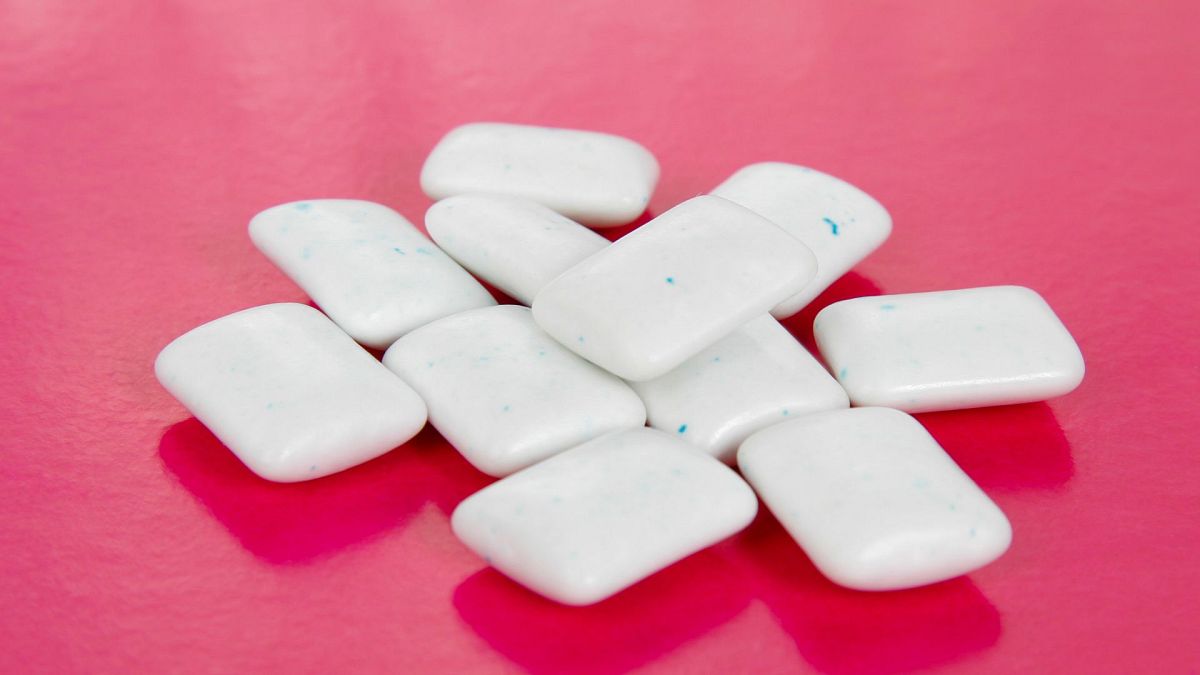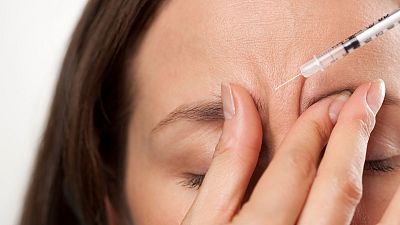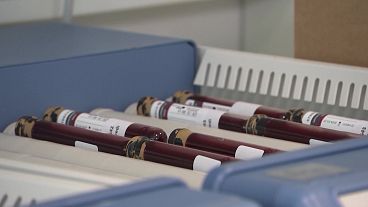The International Agency for Research on Cancer (IARC) has classified aspartame as a "possible" cause of cancer.
The World Health Organization's (WHO) cancer agency has deemed aspartame - the sweetener found in diet soda and countless other foods - as a "possible" cause of cancer, while a separate expert group looking at the same evidence said it still considers the sugar substitute safe in limited quantities.
The differing results of the long-awaited reviews were released early Friday. One came from the International Agency for Research on Cancer, a WHO body responsible for evaluating the carcinogenic potential of substances. The other came from an expert panel selected by WHO and another U.N. group, the Food and Agriculture Organization.
Aspartame joins a category with more than 300 other “possible” cancer-causing agents, including things like aloe vera extract, Asian-style pickled vegetables and carpentry work.
The IARC has two more serious classifications, namely "probably carcinogenic to humans” and “carcinogenic to humans".
Both tobacco smoking and eating processed meat are listed as "carcinogenic to humans". Acetaldehyde (from consuming alcoholic beverages) is listed as "probably carcinogenic to humans".
The move to label aspartame follows a warning from the WHO in May this year that said artificial sweeteners were not a weight loss aid and in fact may raise the risk of diabetes, heart disease, and death.
Last year, a large study in France flagged a possible link between artificial sweeteners and an increased risk of cancer. And national health organisations such as Canada’s have long warned that zero-calorie or low-calorie sugar substitutes are neither necessary nor helpful.
However, this May, WHO emphasised the warning was “conditional” due to the diversity of participants in the studies that formed the basis for its conclusions, as well as the very complex consumption habits of sugar-free sweeteners.
Pushback about aspartame’s potential risks
The IARC's safety review reinforces evidence that has been historically controversial.
"IARC is not a food safety body," said Frances Hunt-Wood, the secretary general of the International Sweeteners Association in a statement anticipating the review this June.
"Aspartame is one of the most thoroughly researched ingredients in history, with over 90 food safety agencies across the globe declaring it is safe, including the European Food Safety Authority, which conducted the most comprehensive safety evaluation of aspartame to date".
The body, whose members include Mars Wrigley - the world's leading manufacturer of chocolate, chewing gum, mints and fruity confections, and Coca-Cola, said it had "serious concerns with the IARC review, which may mislead consumers".
Aspartame has been approved for use by regulatory authorities in many countries, including the United States, Europe, and Canada - concluding that it is safe for consumption within acceptable daily intake limits.
WHO’s guidance is not changing
The guidance on the use of the sweetener isn’t changing, said WHO’s nutrition director Dr Francesco Branca.
"We’re not advising consumers to stop consuming (aspartame) altogether," he noted. "We’re just advising a bit of moderation".
UN experts evaluated the safety of aspartame in 1981 and set the safe daily limit slightly lower, at 40 milligrams of aspartame per kilogram.
David Spiegelhalter, an emeritus statistics professor at Cambridge University, told the Associated Press that the guidance means that "average people are safe to drink up to 14 cans of diet drink a day … and even this 'acceptable daily limit' has a large built-in safety factor".
Is it better to consume sugar instead?
Experts have been quick to highlight that linking aspartame to cancer does not make sugar a preferable alternative. For example, over-consumption of sugar can also contribute to obesity which is an important risk factor for cancer.
In May, the guidelines issued by the World Health Organization (WHO) advising against using non-sugar sweeteners for weight control raised concerns among medical professionals.
Tom Sanders, a professor emeritus of nutrition and dietetics at King's College London, criticised the guidance for not taking into account "the real-world situation," particularly in the field of dietetics.
“Sometimes what you're trying to do is get people to control their weight, which is to reduce their calorie intake, and it can help if people are drinking a full sugary drink to switch to a reduced-calorie drink or zero-calorie drink,” he explained to Euronews Next.
Sanders stressed that "substances that have convincing evidence (eg processed meat) or probable evidence of cancer (eg red meat) should be avoided". But those in the "possible category" are probably "not worth worrying about" as the evidence is limited," he said.
"Action is generally only required where the evidence is convincing," he added.
Almost any substance can be dangerous in excessive amounts, said David Klurfeld, a nutrition expert at the Indiana University School of Public Health-Bloomington.
"The dose makes the poison," said Klurfeld, who previously served on an IARC panel. "Even essential nutrients like vitamin A, iron and water will kill you within hours if too much is consumed".
Which European products have aspartame in them?
Aspartame has been widely used since the 1980s, and the compound is present in more than 6,000 products worldwide.
In the European Union and UK, you may find aspartame listed on product labels or alternatively, its E-number, E-951.
Why is it so pervasive in foodstuffs? The artificial sweetener is approximately 200 times sweeter than regular sugar.
And due to its intense sweetness, only a small amount of it is needed to achieve the desired level of sweetness in food and beverages. The result is fewer calories compared to sugar.
So, which products would you most likely find it used in Europe?
Table-top sweeteners
Aspartame is most commonly available in the form of table-top sweeteners, such as Canderel, Equal and Hermesetas, which are habitually used as sugar alternatives in hot beverages like coffee and tea.
Diet soft drinks
Many drinks popular brands offer diet versions of their beverages, such as Diet Coke, Coke Zero, Pepsi Max, Sprite Zero and Fanta Zero, which all use aspartame to provide sweetness without the added calories of sugar.
Sugar-free chewing gum, candies and mints
Chewing gum brands like Extra, Orbit, Trident, Hollywood, Mentos, Freedent and Airwaves sugar-free alternatives utilise aspartame as either the primary or one of the main sweetening agents.
Low-calorie yoghurts and desserts
Some yoghurt brands, such as Yoplait and Müller Light, produce low-calorie varieties that incorporate aspartame for sweetening purposes.
Similarly, certain sugar-free or reduced-sugar desserts like mousse, puddings, and gelatin may also contain aspartame.



